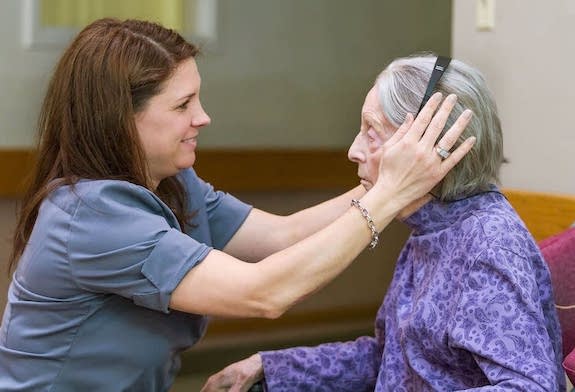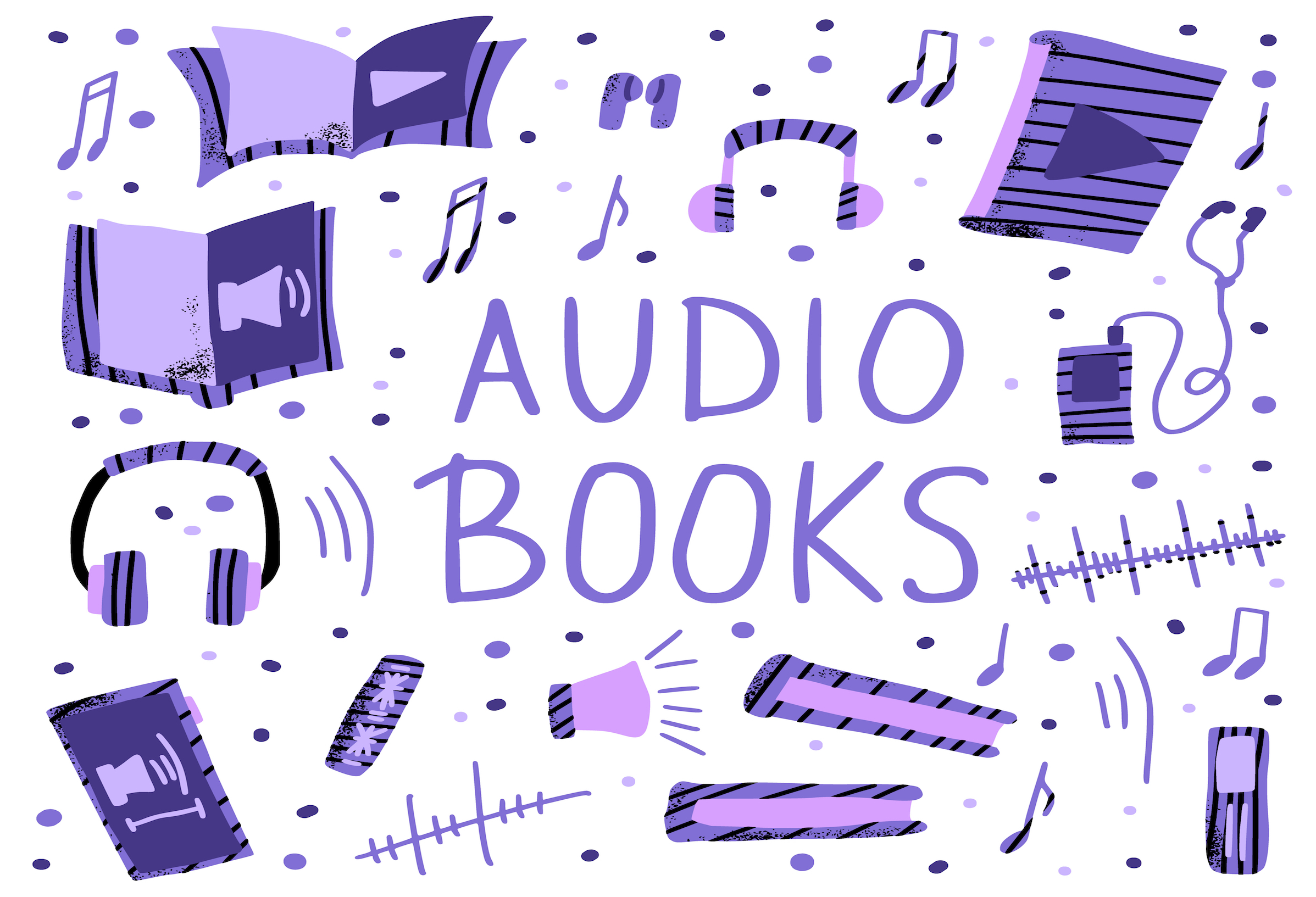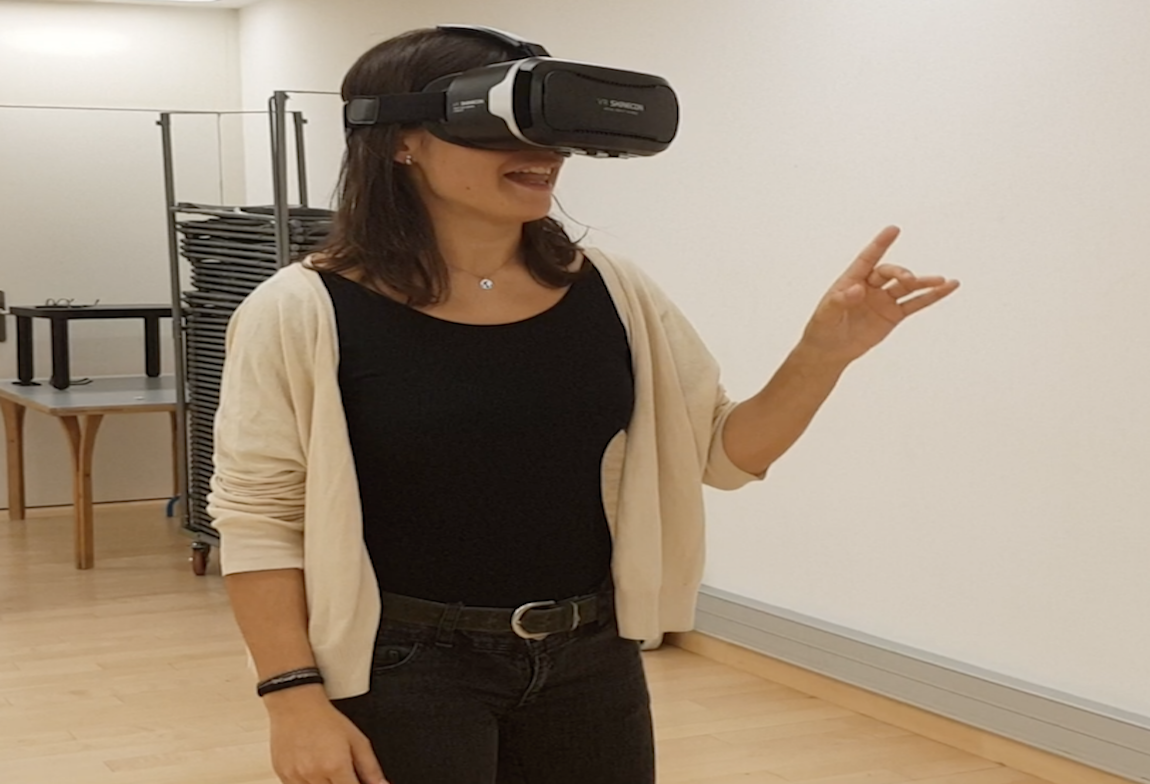Projects in progress
1. 2018–2021. Prosody variations for improving the cognitive response and the communicative interaction between Alzheimer patients and their caregivers. Spanish Education Ministry [CSO2017-83432-R]. PI: Emma Rodero. Researchers: Juan José Meilán, Carme De-la-Mota, Francisco Martínez, Sergio Sayago, Olatz Larrea, Lluís Mas, and Marta Lopera.

Prosody variations for improving the cognitive response and the communicative interaction between Alzheimer patients and their caregivers
The main objective of this project is to analyze whether several prosodic strategies can improve the cognitive response and the communicative interaction between Alzheimer’s disease patients (AD) and their caregivers. In other words, the study aims at assessing how a variety of instructions delivered with different prosodic variations is cognitively processed by patients. To do this, a combination of qualitative and quantitative methods will be applied. The qualitative methods will assess the caregivers’ needs and impressions through a survey. After, we will measure the cognitive response of AD patients: their attention, activation, and emotional response. This response will be analyzed by measuring the psychophysiological reaction: heart rate, electrodermal activity, and electromyography. A digital game with tasks will also be designed to measure the motivation and comprehension of the instructions that these patients receive. The contribution will be: to implement an Alzheimer’s Caregiver Training and to create a digital game to measure the prosody response of Alzheimer’s patients.
2. 2018-2020. Audiobooks, what is the best strategy to deliver the story of the books. Fundación Becas Leonardo, BBVA. PI: Emma Rodero.

Audiobooks, what sound format conveys the literature in a most effective way
Audiobooks are today the format in which it is expected that there will be more growth in the coming years. In the last five years, in the United States, there has been a significant increase in popularity. This study aims to analyze what is the sound format that stimulates to a greater extent the creation of mental images in the listeners, which allows them to get more involved in the story, gives them more attention, motivation, emotional activation, and favors their recall. To do this, an experiment will be designed where a sample of subjects who will listen to fragments of audiobooks with different formats (only voice, different voices, voice and music, voice and sound effects). While listening to the audiobooks, their physiological response to the audio stimulus will be measured: attention, arousal, and emotional reaction. In addition, they will fill out scales to measure the creation of mental images and the involvement. Finally, a memory test will be performed to measure the recall of the story.
3. 2018-2019. Virtual Reality to Speak in Public. PlaClik, UPF. PI: Emma Rodero. Researchers: Olatz Larrea.

Virtual reality to speak in public: overcome stage fright and improve oral communication skills
The idea of this project is to use new technologies and, in this case, virtual reality to learn oral communication skills. It has been shown that virtual reality is a very effective therapeutic tool when it comes to overcoming phobias and fear. We know that one of the most important problems when facing a presentation in front of the audience is stage fright. Who has not felt butterflies in the stomach before speaking in public? Therefore, the first objective of this project is to try to alleviate this fear, using a virtual reality program designed for the training of oral skills. It consists of software and virtual reality glasses. Practicing in this virtual way, the subject can learn to overcome stage fright. But, also, as a second objective, all oral communication skills are being trained. In short, this project applies virtual reality to the training of oral presentations with the aim of a) overcoming stage fright and b) improving oral communication skills training in real scenarios.
4. 2018-2019. Effective Oral Strategies in Public Speaking. Barcelona School of Management. PI: Emma Rodero. Researchers: Olatz Larrea and Lluís Mas

Effective oral strategies in public speaking: The effect on voice, gestures, and appearance on presentations
In general, there is an evident lack of training in oral communication, about how to speak in public. The question that arises is what the most important strategies are to get the audience’s attention and comprehension. The general objective of this study is to analyze the influence of the key variables of oral communication, especially non-verbal, on the credibility of the speaker and the effectiveness of the presentation. Specifically, this project has the following specific objectives: to determine the most effective and credible oral communication strategies in a public speech by measuring the degree of attention, motivation, recall and emotional level of the participants, and to identify the importance and weight of different oral communication strategies in a public presentation: use of gestures, use of voice, and physical appearance of the speaker. The method will combine self-perception scales and psychophysiological techniques. We will measure heart rate, skin conductance, and emotional response.
5. 2018-2020. Oral communication for future professionals. Recercaixa. PI: Pilar Prieto and Joan Carles Mora. Researchers: Emma Rodero.

Oral skills for future professionals: an intervention program for high school students
The goal of this project is to train the oral skills of high school students.
